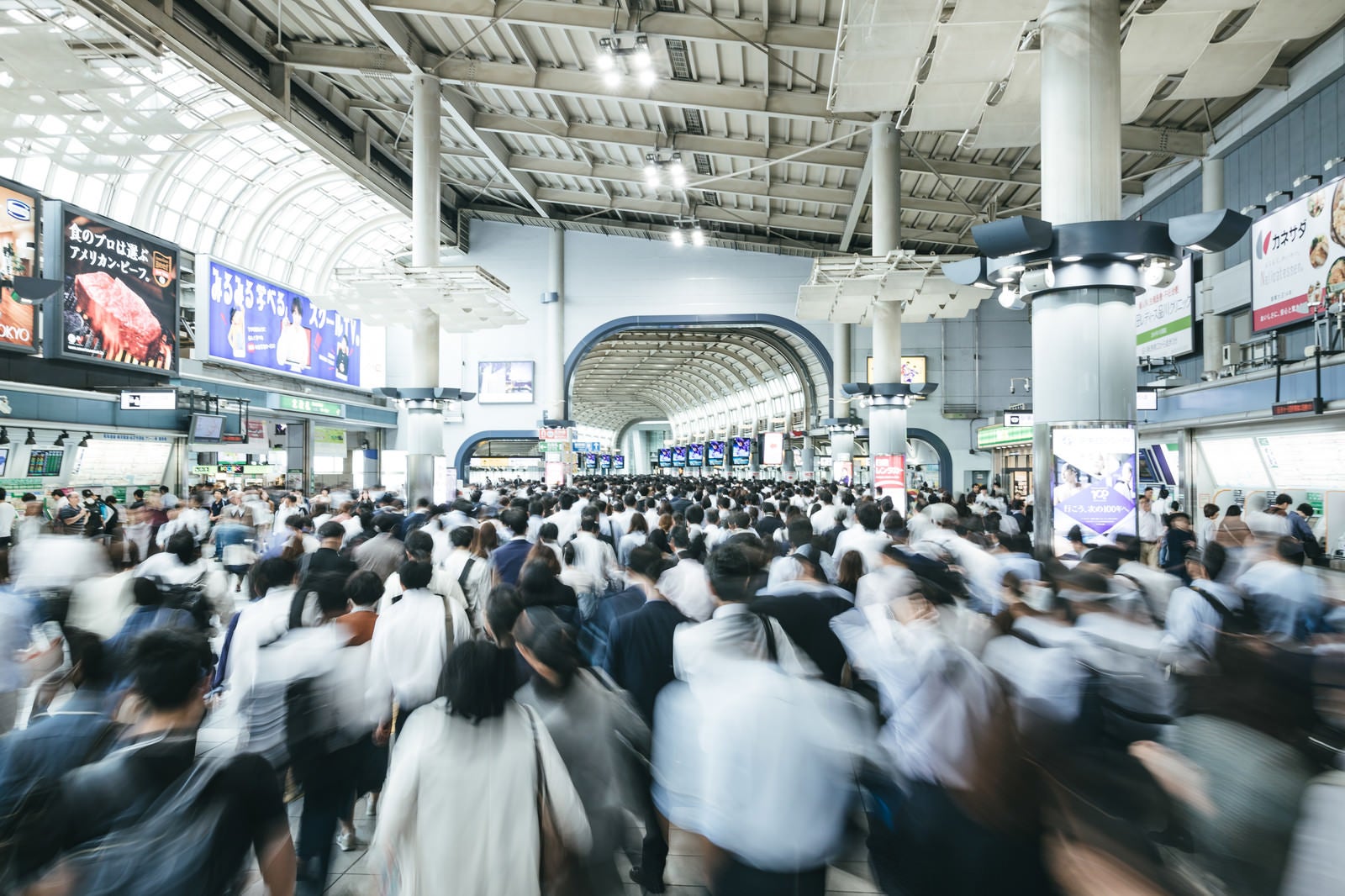If you ride a train in Japan, you may notice something unusual: many people carry their backpacks in front of their bodies instead of on their backs. At first, this may seem strange, but it’s one of Japan’s unwritten rules—not an official regulation, but a common courtesy in crowded spaces.
Why Do People Carry Bags in Front?

There are several reasons why Japanese commuters carry their bags in front. First, it is a matter of courtesy in crowded trains.
Keeping a backpack on your back can bump into people, take up space, or block the way. Holding it in front reduces inconvenience for others.
This is especially important during rush hour, when Japanese trains become so packed that they are often described as “full to capacity” or even “crushed.”
Second, it adds a layer of safety and security. Although Japan is generally safe, keeping your belongings visible lowers the risk of pickpocketing, especially in busy stations or while traveling.
Finally, carrying bags in front improves efficiency. It makes it easier for people to move around inside the train and helps passengers get on and off smoothly.
Comparison with Other Countries
In many countries outside Japan, people usually keep their backpacks on their backs, even in crowded trains. It is not always considered impolite, and awareness of this practice varies depending on the place and situation.
Because of this, some travelers may be surprised when they first see Japanese passengers carrying their bags in front. What looks unusual at first is actually a gesture of social harmony in Japan—an effort to reduce discomfort for others.
In cities like Paris, some people also carry their bags in front, mainly as a way to prevent pickpocketing. In other countries, awareness of this practice varies and often depends on personal choice rather than a shared social custom.
Tips for Tourists in Japan
If you are visiting Japan and plan to use trains, here are some tips to make your ride smoother:
- Follow the crowd: If you see other passengers carrying their bags in front, it’s good manners to do the same.
- Keep it close: Hold your bag close to your body so it doesn’t touch others.
- Mind your suitcase: If you have large luggage, stand near the doors or use designated luggage spaces when available.
Conclusion
Carrying your bag in front may seem like a small gesture, but it reflects one of Japan’s most important cultural values: consideration for others.
This is not an official rule written by train companies, but an unwritten rule that many people naturally follow in crowded situations. By practicing this custom, tourists can blend in more easily, avoid awkward moments, and experience Japanese train etiquette like a local.

